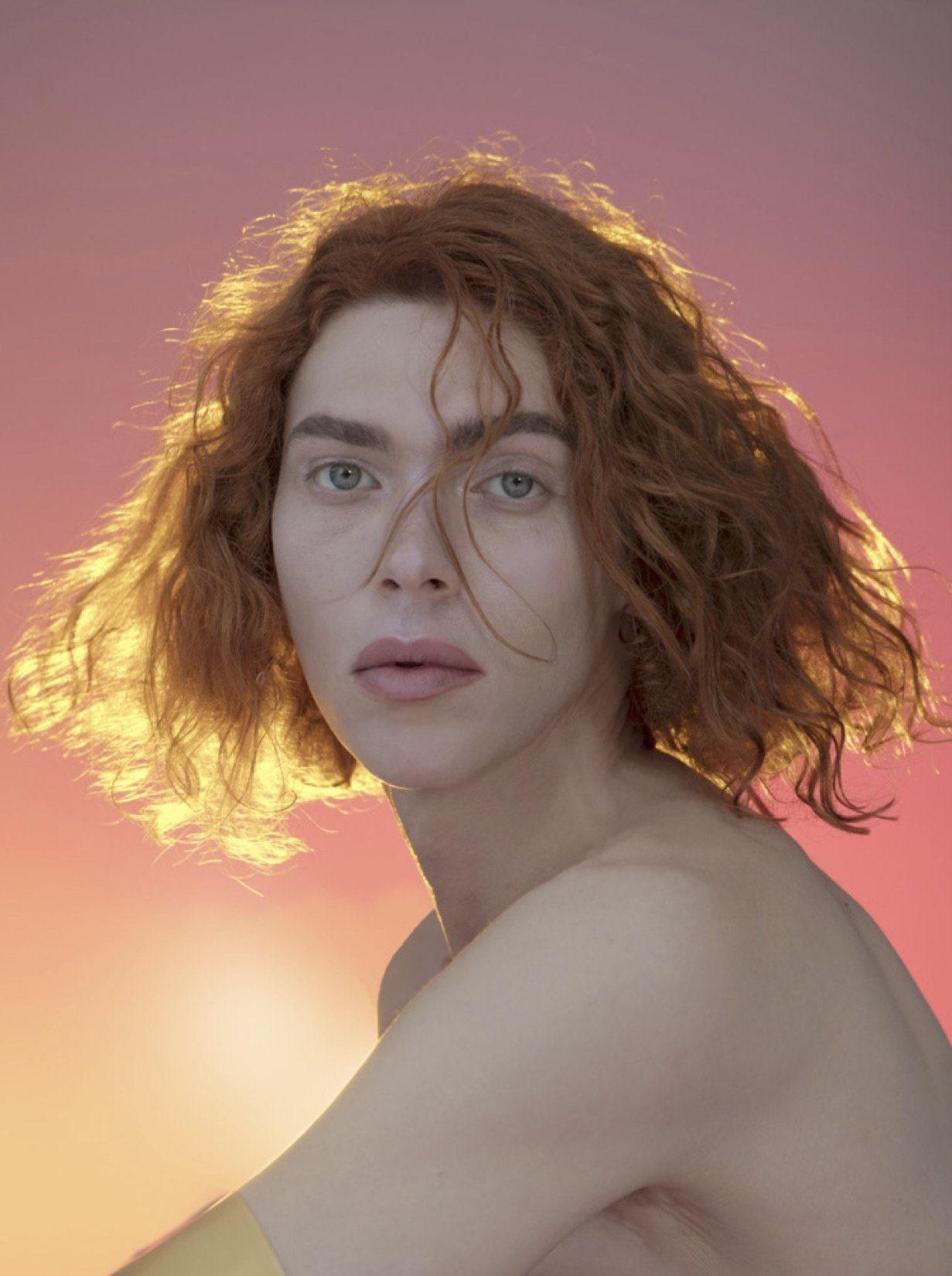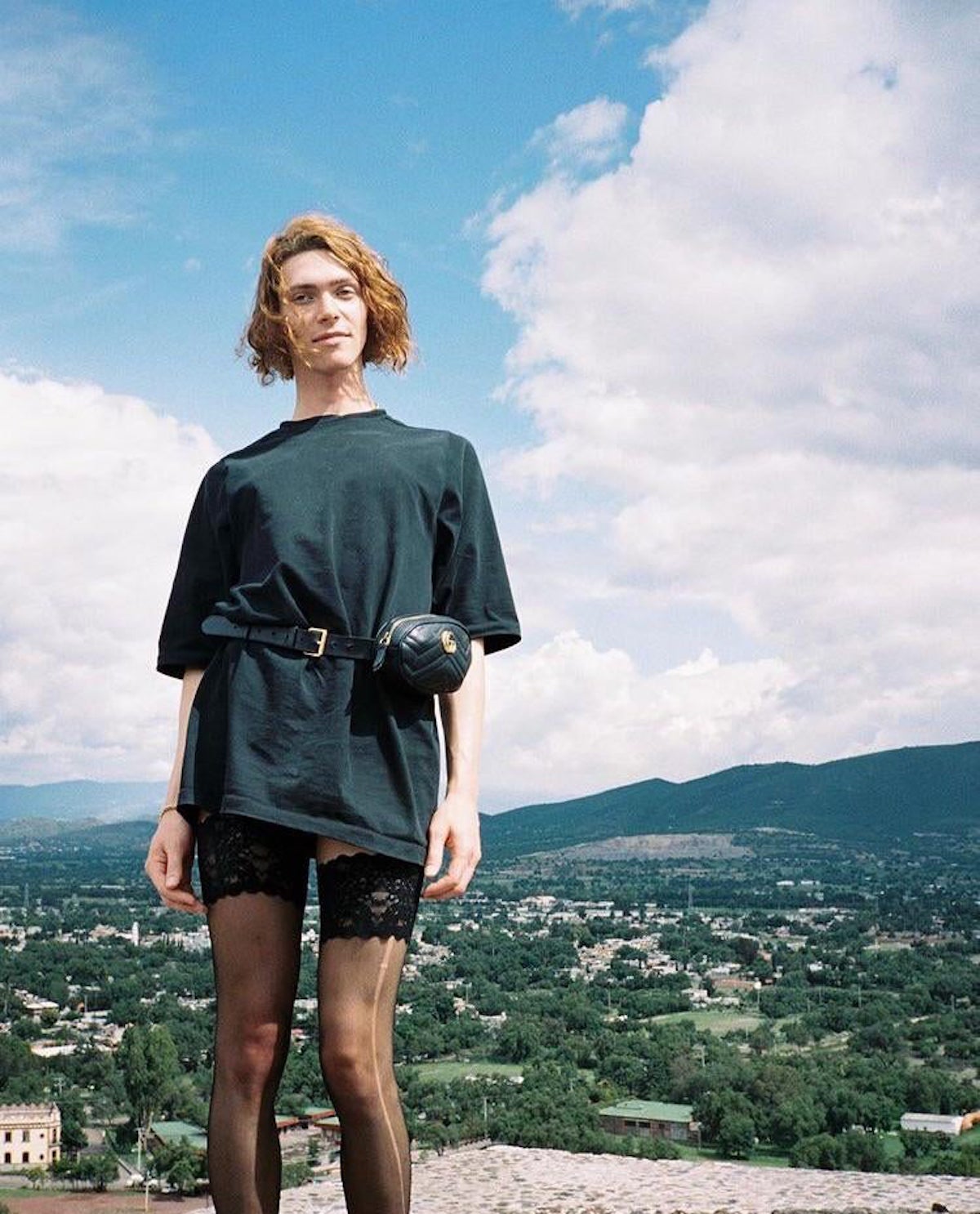Soft Mosh (for SOPHIE)
by Anthony Strain
***
Considering she was maybe the least confused artist alive, Sophie Xeon was a confusing kind of famous. Analyzed and canonized by the extremely online, she flew just over the mainstream despite working with its biggest names (Rihanna and Madonna were two). Even as SOPHIE, the all-caps mononym stylized for maximum marquee, her DNA was subcultural, even with her deadpan relationship to corporate media.1When she died last week, at the age of 34, having redefined what popular music could sound like, the sadness and gratitude that billowed across the internet were fit for a monarch of liberation: for queer teens, trans artists, and anyone with a pulse really.
I didn’t anticipate her orbit ending below the fold of the New York Times. Back in 2014, when I discovered the sound she really did liberate, I thought it was the most fun thing I’d ever heard, but overall a gigantic prank. An elaborate ecosystem of oddball club, bubbly camp, and surreal marketing, PC Music was then appearing mostly in art world nodes like Dis or Tank with the delirious, speed-futurist mixes of its Willy Wonka provocateur, A.G. Cook.2If you craved found footage from Legend of Zelda or the video artist Stan Douglas before a New Jack Swing track, this was your brain on drugs. In August 2014, Ray-Ban sponsored a Boiler Room event in Los Angeles that was supposed to be a release party for Scottish producer Hudson Mohawke. Instead, everyone remembers it as the unveiling of QT, a PC Music persona who just sat on stage reading Spirituality & Health while her pre-recorded song played.3The performance artist Hayden Dunham was QT, but we didn’t know that then. SOPHIE performed, sort of, but offstage with a stand-in. She was still 3 years away from coming out as trans.
As her brand and collaborations grew, SOPHIE moved to Los Angeles. Her PC Music affiliates A.G. Cook and Danny L. Harle also spent a lot of time here, and the music is “very LA,” not that I’m willing to explain that. She allied with the e-girl brand HEAV3N, whose parties were always a rare breed of decadent and wholesome, mostly because they were 18+. One such night, in August 2019, I found SOPHIE DJing in a hoodie, playing everything from “Me & You” by Cassie to Geraldine Hunt’s disco jewel “Look All Around.” A month later, the art collective Navel threw a party downtown, and SOPHIE again answered the call, playing in a tiny soundproof sweatbox off the main floor, wearing long mesh gloves. Her tracklist this time included “UFOs” by Green Velvet and, in a vintage PC Music twist, “Another Night” by Real McCoy. The vibe in that room, or roomlet, was indescribable. She lit one cigarette after another, close enough to the tiny crowd to put them out on our bodies if she’d wanted, the mix swelling up like a wound and everyone pushing closer in a thresh of windmilling limbs, the smell and temperature and claustrophobia all unspeakable, and nobody caring at all. Soft mosh.
There were three albums: Product, a slew of sneering readymades from 2015 when she was still using digital renderings of water slides for screen art4, including the classics “Bipp”5 and “Lemonade”6; 2018’s Oil of Every Pearl’s Un-Insides, half detuned house tracks and half ambient seascapes, all made with her preferred instrument, the Elektron Monomachine, using only organic sounds and zero samples; and Oil of Every Pearl’s Un-Insides Nonstop Remix Album, which came out in September 2019, with SOPHIE handling all the assignments herself, under pseudonyms, and giving the revamped collection jumbled or disambiguated titles like “Push Emission (wHor3 Moans).” The remix album is my favorite of the three: I didn’t hear another record all decade that was better dedicated to mental health. Raw meat everywhere; trenchant swings between low and high bpm like weight fluctuations; sweaty fugues and whispery vogues and jackhammers outside windows. Workout music for the unrealistic id; maybe I’m projecting, but the project is a panic attack induced, confronted, and assuaged in 1 hour and 34 minutes.
For all its dance elocution, much of the SOPHIE catalog swims toward a diagnosis of noise, her patented “pots and pans” effect building jittery, cacophonic helixes of glass and steel.7She was interested in extreme emotion more than songcraft, the three-minute melody as an excuse to feel something. More than that, as a creature of the analog, she was interested in waveforms more than presets because bodies are more sound than shape. For her Paper cover story in 2018 she said, “We’re all thinking, feeling beings in a very complex world, and we should be using every technology and information around us to adapt.”
SOPHIE embodied the zeitgeist because music, fashion, and contemporary art have infested each other so much in the last decade they’ve created a new kind of monotheism, where being fluent in one medium requires being fluent in the other two. One god, not three. Early forms of iconic tracks like “Bipp,” “Hard,” and “Nothing More to Say” were around in 2011, when she scored performance pieces by the artist Matthew Lutz-Kinoy at the New Museum and elsewhere. One of her last public sets was for a HEAV3N livestream, in the first months of the pandemic, that Twitch moderators banned (the chat got out of hand). The 19 minute, 42 second show was posted online after the fact, with lasers by Pieterjan Ruysch, images by photographer Renata Raksha, and legendary, unreleased collabs like “My Forever (feat. Cecile Believe)” and “Inside Out (feat. Shygirl).” But nothing signifies the SOPHIE experience like the 2017 video for “It’s Okay to Cry,” when she came out as trans, her voice and body on full display against a candy-colored galaxy.8A teased-out, dubby edit soundtracked Louis Vuitton’s S/S 2020 show; SOPHIE herself walked for Eckhaus Latta A/W 2018.
In the DIY spaces and smoky warehouses of the tightly-wound L.A. party scene(s), SOPHIE was like someone we knew, through all our blackouts and embarrassments, seeing her onstage at HEAV3N or Bubbles or in the crowd at Hard to Read. Printed Matter signed her for the L.A. Art Book Fair afterparty, in February 2017, after we’d spent the day milling around Little Tokyo. Following appearances by Gaika and Nico Jaar, SOPHIE appeared, barely, wrapped in heavy smoke and sirens, playing unreleased snippets and closing with a thunderous, statuary-melting, merry-go-round remix of “Lipgloss,” a track she produced for Charli XCX. If the main pop ingredient is sugar, the “Lipgloss” remix is an example of SOPHIE making it crunch instead of smack, adding harshness and a sense of altercation. I got obsessed with this track, playing the YouTube rip9over and over at a party the next weekend, the only night I ever called the suicide hotline. There was some coke, and some anxiety, and I kind of just wanted to see what they would say. Do you have a PLAN? they ask you. No, I do NOT have a plan, that’s why I called you.
Of course we didn’t know her, she wasn’t really friends with all of us. But the queer community runs on various grids of intimacy, and in L.A. that community can feel small, even if you’re not on the stage behind the DJ. Faces are one of those grids, faces you shop and memorize. There’s always a moment, at any good afterhours, where distinctions of access and influence fall away and there are no strangers: there is only our bodies, and the sound.

